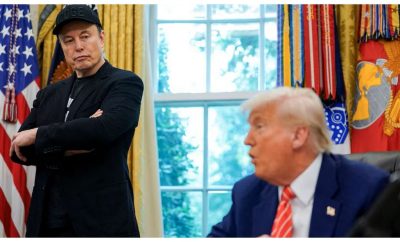
The next great free speech debate
We want to prepare you for the next frontier in America’s free speech argument: putting the power of what you read, see and hear in your hands alone.
- The concept carries a pedestrian name: the “decentralized” web, or “web3.” But its consequences are profound — rewiring the very foundation of social media and speech policing.
Why it matters: Elon Musk, Jack Dorsey (co-creator of Twitter) and many others believe that you — not the government or social media platforms — should decide who and what you get to read and hear online.
Think of it this way: Right now, Twitter decides if former President Trump can post on its platform, and whether to delete a post about vaccines if it and most scientists deem the post misinformation.
- In a decentralized web, you would decide if Trump appears on the web3 equivalent of your Twitter feed — and set your own thresholds on vaccine information providers.
📚 Speedy history lesson: The decentralized web is what the web you know was when it started. It changed because big companies stepped in and gave people what a lot of them wanted, which was not to have to make these choices.
🔭 What to watch: Musk just bought 9% of Twitter, in part to push the platform to stop playing speech cop and move to a world where its algorithm (the technology that decides what users see) is open to everyone to see and shape.
- The Musk camp believes all social media should move into this new state of being.
- Not to overcomplicate things, but this is very similar to how we explained cryptocurrencies to you: Basically, we build a completely public infrastructure for all to see and contribute to, pulling power away from centralized authorities, like the government or big companies.
The dangers: It would be the Wild West of speech and power.
The rule-makers America has relied on since its founding — government and business — would be replaced by a brave new world of astonishing individual freedom.
- Critics, who are powerful and numerous, warn that unsuspecting individuals would be subject to more fake, false or unhealthy information and would be more easily manipulated by bad actors. Most people don’t have the time to study what’s real and reliable, and history shows how susceptible most are to harmful misinformation campaigns.
- Supporters counter that the government and big companies are lousy at — and biased in — policing speech so it’s time for something radically new.
So pay attention, folks. Oh, and if you want to go deeper on this topic, these are two good reads:
- The Guardian breaks down the decentralized web in a simple Q&A format.
- WIRED explains how we got here.
Πηγή: axios.com




